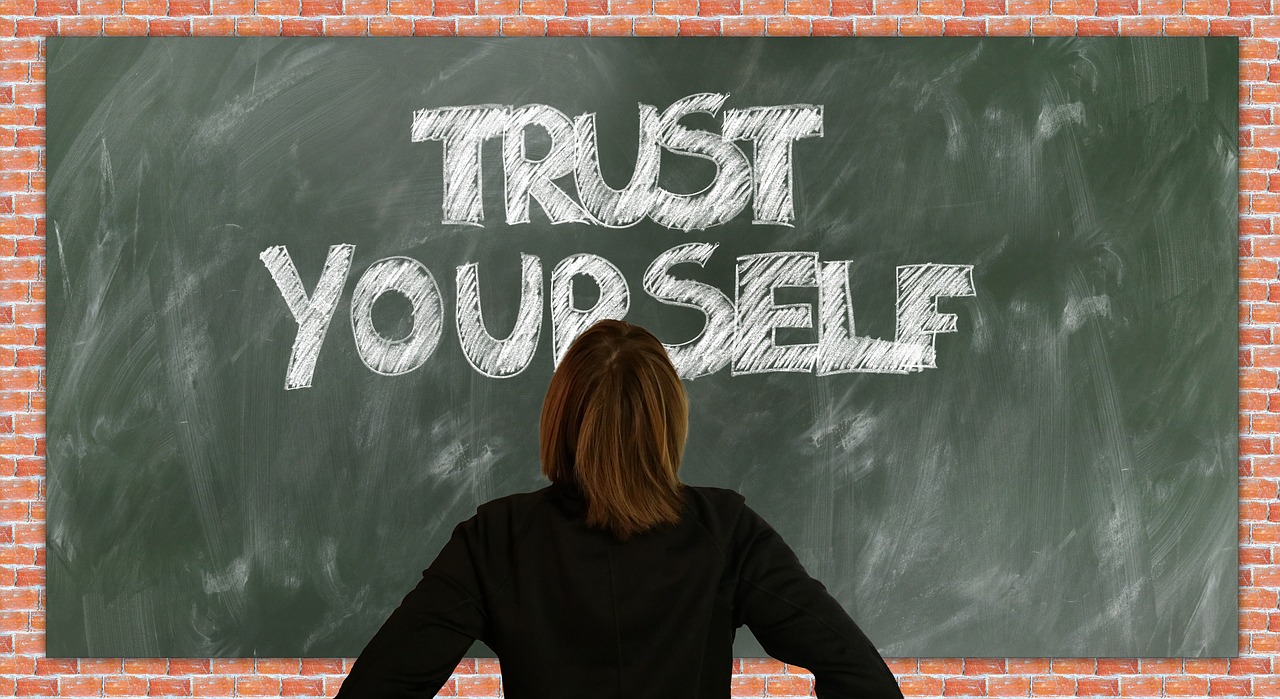Confidence and Emotional Intelligence - What's The Connection?
Have you ever noticed how some people seem to light up a room just by walking in? They exude a certain confidence that draws others in, making them feel at ease. But what if I told you that this confidence is often intertwined with a deeper skill set known as emotional intelligence? Understanding the connection between these two traits can be a game-changer, not only for personal growth but also for professional success. In this article, we will explore how confidence and emotional intelligence influence each other and contribute to our overall well-being.
Imagine confidence as the sturdy foundation of a house. It gives you the stability to build upon, while emotional intelligence acts as the intricate wiring that connects everything. Together, they create a harmonious living space where you can thrive. This relationship is not just a feel-good notion; it’s backed by research and real-world examples that show how mastering both can lead to a fulfilling life.
So, why should you care about these concepts? Well, think about your daily interactions. Whether you're at work, socializing with friends, or even navigating family dynamics, the ability to understand and manage emotions—both yours and those of others—can significantly impact your effectiveness and satisfaction. In the following sections, we will break down these concepts, providing insights and practical strategies to enhance both your confidence and emotional intelligence.
Ready to dive deeper? Let’s unravel the intricacies of confidence and emotional intelligence, and discover how they can work together to elevate your personal and professional life.
- What is the difference between confidence and emotional intelligence?
Confidence refers to the belief in one’s abilities, while emotional intelligence involves understanding and managing emotions effectively. - Can you improve your emotional intelligence?
Yes! Emotional intelligence can be developed through practice, self-reflection, and learning to empathize with others. - How does confidence impact leadership?
Leaders with high confidence can inspire their teams, make decisions more effectively, and handle stressful situations with poise. - Is it possible to be confident but lack emotional intelligence?
Absolutely. A person can be self-assured yet struggle with understanding emotions, which may hinder their relationships.

The Definition of Confidence
Understanding what confidence truly means is essential in recognizing its impact on our actions and decisions. Confidence is not merely about having a high opinion of oneself; it encompasses a complex interplay of self-belief, self-assurance, and the ability to take risks. Think of confidence as the sturdy bridge that connects our perceptions of ourselves to our actions in the world. Without this bridge, we might find ourselves hesitating at the edge, unsure whether to cross into new opportunities.
At its core, confidence can be broken down into several dimensions:
- Self-Esteem: This refers to how we value ourselves. High self-esteem often leads to a greater sense of confidence.
- Self-Efficacy: This is the belief in our ability to succeed in specific situations. When we feel capable, we are more likely to take on challenges.
- Resilience: Confidence is also about bouncing back from failures. The more resilient we are, the more confident we feel in our ability to overcome obstacles.
Confidence manifests differently in various aspects of our lives. In personal relationships, it allows us to express ourselves openly and assertively. In professional settings, it can be the deciding factor in whether we pursue promotions or take on leadership roles. The nuances of confidence can often be seen in how we carry ourselves—our body language, our tone of voice, and even our willingness to engage in conversation.
However, it’s essential to note that confidence can be a double-edged sword. Overconfidence can lead to recklessness, while underconfidence can result in missed opportunities. Thus, finding the right balance is critical. In many ways, confidence is like a muscle; it can be developed and strengthened over time through practice and positive reinforcement.
In summary, confidence is a multi-faceted trait that affects nearly every aspect of our lives. Recognizing its various dimensions helps us understand how it can influence our decisions and interactions. As we delve deeper into the relationship between confidence and emotional intelligence, we will see how these two traits complement and enhance one another, paving the way for personal and professional success.
Emotional intelligence encompasses the ability to recognize and manage our emotions and those of others. This section will explain its components and significance in personal interactions and professional environments.
Confidence plays a crucial role in enhancing emotional intelligence. This section will discuss how self-assurance can lead to better emotional regulation and interpersonal relationships.
Developing emotional intelligence can significantly boost one's confidence. This section will outline strategies for leveraging emotional skills to foster greater self-belief and assertiveness.
Individuals with high emotional intelligence often exhibit greater confidence. This section will explore the ways emotional awareness and empathy contribute to a more assured self-presentation.
Leadership requires a blend of confidence and emotional intelligence. This section will examine how effective leaders utilize these qualities to inspire and motivate their teams.
Striking a balance between confidence and emotional intelligence can be challenging. This section will address common pitfalls and how to navigate them for personal growth.
Developing both confidence and emotional intelligence is achievable through targeted practices. This section will provide actionable tips for individuals seeking to improve in these areas.
In conclusion, confidence and emotional intelligence are deeply intertwined. This section will summarize key points and emphasize their importance for overall success and well-being.
Here are some common questions regarding confidence and emotional intelligence:
- What is the difference between confidence and self-esteem? While self-esteem refers to how we value ourselves, confidence is more about our belief in our abilities to tackle specific tasks.
- Can emotional intelligence be developed? Yes, emotional intelligence can be cultivated through practice and mindfulness.
- How can I improve my confidence? Engaging in positive self-talk, setting achievable goals, and seeking feedback can significantly enhance your confidence.

The Role of Emotional Intelligence
Emotional intelligence (EI) is often described as the ability to recognize, understand, and manage our own emotions, as well as the emotions of others. But what does that really mean in our day-to-day lives? Imagine walking into a room full of people. Some are laughing, while others seem tense. A person with high emotional intelligence would not only notice these emotions but also understand the context behind them. They might pick up on a colleague's frustration and choose to approach them with empathy rather than indifference, fostering a more supportive environment.
At its core, emotional intelligence is comprised of several key components:
- Self-awareness: This is the foundation of emotional intelligence. It involves recognizing your own emotions and how they affect your thoughts and behavior.
- Self-regulation: This refers to the ability to manage your emotions, particularly in stressful situations. It’s about keeping your feelings in check and responding thoughtfully rather than reacting impulsively.
- Motivation: Emotionally intelligent individuals are often driven by internal values and goals rather than external rewards. They possess a strong sense of purpose that fuels their actions.
- Empathy: This is the ability to understand and share the feelings of others. Empathy allows us to connect with people on a deeper level, enhancing our relationships.
- Social skills: These are the skills we use to interact and communicate with others. Strong social skills help in building rapport, managing conflicts, and inspiring others.
Understanding these components can significantly enhance our personal and professional relationships. For instance, in a workplace setting, an emotionally intelligent leader can create a positive atmosphere that encourages collaboration and innovation. They can sense when team members are struggling and provide the necessary support, thereby improving morale and productivity. In contrast, a lack of emotional intelligence can lead to misunderstandings, conflicts, and a toxic work environment.
Moreover, emotional intelligence is not a static trait; it can be developed over time. By actively working on our emotional skills, we can improve our interactions and relationships. Whether it’s through mindfulness practices that enhance self-awareness or communication training that boosts social skills, the journey towards higher emotional intelligence can be both rewarding and transformative.
In summary, emotional intelligence is a vital aspect of our interactions with others. It shapes how we respond to our own emotions and those of the people around us. By cultivating emotional intelligence, we not only improve our personal lives but also enhance our professional effectiveness, making it an invaluable skill in today’s interconnected world.

How Confidence Influences Emotional Intelligence
Confidence is like the fuel that powers the engine of emotional intelligence. When you possess a healthy level of confidence, it allows you to navigate the complex landscape of emotions—both your own and those of others—with greater ease. Imagine trying to drive a car without knowing how to steer; that’s how it feels to approach emotional situations without confidence. In this way, confidence acts as a guiding compass, helping you make sense of emotional cues and respond appropriately.
When you're confident, you are more likely to engage in open communication. Think about it: if you believe in your opinions and feelings, you're more inclined to express them. This openness fosters deeper connections with others, allowing for a more nuanced understanding of their emotions. As a result, you become better at reading social situations and responding with empathy—a key component of emotional intelligence. Without confidence, you might hesitate to share your thoughts, leading to misunderstandings and missed opportunities for connection.
Moreover, confidence enhances your ability to regulate your own emotions. Picture yourself in a high-pressure situation, such as a job interview or a public speaking event. If you lack confidence, anxiety can take over, clouding your judgment and affecting your emotional responses. However, when you approach these situations with confidence, you're more likely to stay calm and collected, allowing you to think clearly and respond effectively. This self-regulation is a critical aspect of emotional intelligence, as it enables you to manage stress and maintain composure in challenging circumstances.
In addition, confidence can significantly impact how you perceive feedback from others. Confident individuals are generally more open to constructive criticism, viewing it as an opportunity for growth rather than a personal attack. This mindset not only enhances emotional resilience but also allows for a better understanding of how your actions affect those around you. When you can accept feedback with grace, you become more adept at adjusting your emotional responses and behaviors, further refining your emotional intelligence.
To illustrate the connection between confidence and emotional intelligence, consider the following table that outlines their interrelationship:
| Aspect | Influence of Confidence on Emotional Intelligence |
|---|---|
| Communication | Confident individuals express their thoughts freely, fostering better understanding. |
| Emotion Regulation | Confidence allows for calmness and clarity in high-pressure situations. |
| Feedback Reception | Confident people view feedback positively, enhancing their growth and adaptability. |
In essence, confidence and emotional intelligence are intertwined in a dance; each influences the other in a symbiotic relationship. By cultivating confidence, you not only enhance your emotional intelligence but also create a ripple effect that enriches your personal and professional interactions. So, the next time you find yourself doubting your abilities, remember that building your confidence can lead to a more profound understanding of emotions, both yours and those around you. It's a win-win situation!
Frequently Asked Questions
- How can I boost my confidence? Start by setting small, achievable goals and celebrating your successes. Surround yourself with supportive people who uplift you.
- Is emotional intelligence something I can develop? Absolutely! Emotional intelligence can be enhanced through practice, self-reflection, and learning to empathize with others.
- What are some signs of high emotional intelligence? Individuals with high emotional intelligence often show empathy, manage stress well, and communicate effectively.

Building Confidence Through Emotional Intelligence
Building confidence through emotional intelligence is like planting a seed in a garden; with the right care and attention, it can grow into something beautiful and strong. Emotional intelligence, or EQ, is the ability to understand and manage your emotions and those of others. When you harness this power, you can cultivate a deeper sense of self-awareness, which is a critical component of confidence. Imagine walking into a room, fully aware of your emotions and how they affect your interactions. This awareness allows you to engage with others authentically and assertively, which in turn boosts your self-esteem.
One of the most effective ways to build confidence through emotional intelligence is by practicing self-regulation. This means learning to control your emotional responses, especially in challenging situations. For instance, if you find yourself feeling anxious before a presentation, instead of letting that anxiety overwhelm you, you can use emotional intelligence techniques to calm yourself. Techniques such as deep breathing, positive self-talk, and visualization can help you manage those feelings and present yourself confidently. It’s like having a toolbox filled with strategies that you can pull from whenever you need to boost your self-assurance.
Another essential aspect is empathy. By understanding the emotions of others, you can navigate social situations more effectively. When you empathize with your colleagues or friends, you create a supportive environment that fosters mutual respect and trust. This not only enhances your relationships but also reinforces your confidence. You start to see yourself as someone who can positively influence others, which is a tremendous confidence booster. Think of it as being the glue that holds a team together; when you connect with others on an emotional level, you strengthen your own sense of self-worth.
Moreover, practicing active listening is a powerful tool in building confidence through emotional intelligence. When you truly listen to others, you validate their feelings and opinions, which in turn encourages them to engage with you more openly. This creates a feedback loop where you feel more comfortable expressing your thoughts and emotions, thereby enhancing your confidence. It's like being in a conversation where both parties are uplifted; the more you listen, the more confident you become in sharing your own ideas.
To summarize, building confidence through emotional intelligence involves:
- Enhancing self-awareness to understand your emotions better.
- Practicing self-regulation to manage emotional responses effectively.
- Developing empathy to connect with others and foster supportive relationships.
- Engaging in active listening to create a two-way dialogue that boosts confidence.
By incorporating these strategies into your daily life, you’ll find that your confidence grows alongside your emotional intelligence. It’s a beautiful cycle where each trait nourishes the other, leading to a more fulfilling personal and professional life. So, the next time you’re feeling uncertain, remember that your emotional intelligence is a powerful ally in building the confidence you need to thrive.
- What is emotional intelligence? Emotional intelligence is the ability to recognize, understand, and manage our own emotions and the emotions of others.
- How can I improve my emotional intelligence? You can improve your emotional intelligence by practicing self-awareness, self-regulation, empathy, and active listening.
- Can emotional intelligence help in professional settings? Absolutely! High emotional intelligence can enhance teamwork, leadership, and communication skills, leading to greater success in the workplace.
- Is confidence the same as arrogance? No, confidence is a healthy belief in your abilities, while arrogance is an overestimation of those abilities often accompanied by a lack of consideration for others.

The Impact of High Emotional Intelligence on Confidence
When we talk about emotional intelligence, we're diving into a realm that significantly shapes our interactions and self-perception. High emotional intelligence (EI) is like having a superpower in the world of emotions. It allows individuals to not only understand their own feelings but also to navigate the emotional landscapes of others effectively. This profound understanding can lead to a remarkable boost in confidence. But how exactly does this work?
First off, let’s consider the role of self-awareness. Individuals with high emotional intelligence possess a keen sense of their emotions. They can identify what they are feeling and why, which is crucial for building confidence. Imagine walking into a room filled with people. If you’re self-aware, you can recognize feelings of anxiety or excitement and understand how to channel them positively. This self-awareness allows for a more grounded presence, making you appear more confident to others.
Moreover, high EI fosters empathy, which is the ability to understand and share the feelings of others. When you can empathize, you create stronger connections, leading to a supportive network. This network can be a tremendous confidence booster. Think of it like having a safety net; when you know that others understand and support you, it becomes easier to take risks and step outside your comfort zone. With a solid support system, even the most daunting challenges seem manageable.
Additionally, individuals with high emotional intelligence are generally better at emotional regulation. They can manage their emotions effectively, preventing negative feelings from overwhelming them. This ability to stay calm and composed in stressful situations translates directly into confidence. For instance, during a presentation or a crucial meeting, someone with high EI can maintain their cool, articulate their thoughts clearly, and respond to unexpected questions with ease. This calmness not only boosts their confidence but also instills confidence in those around them.
Furthermore, having high emotional intelligence enhances one's decision-making skills. When you can accurately assess your emotions and the emotions of others, you are more equipped to make informed choices. This clarity in decision-making fosters a sense of control and assurance in your abilities, which is a core component of confidence. For example, if you're leading a team and can gauge the morale and emotions of your team members, you can make decisions that not only benefit the project but also uplift the team's spirit.
In essence, the impact of high emotional intelligence on confidence is circular. As you enhance your emotional intelligence, your confidence grows, and as your confidence grows, your emotional intelligence can further develop. It's a beautiful cycle that fosters personal and professional growth. Just like a well-tended garden, the more you nurture these qualities, the more they flourish.
To sum it up, high emotional intelligence is a catalyst for confidence. It cultivates self-awareness, empathy, emotional regulation, and sound decision-making, all of which are essential for projecting confidence. So, if you’re looking to boost your own confidence, consider investing time in developing your emotional intelligence. It’s a journey worth taking!
- What is emotional intelligence? Emotional intelligence refers to the ability to recognize, understand, and manage our own emotions and the emotions of others.
- How can I improve my emotional intelligence? You can improve your emotional intelligence by practicing self-awareness, empathy, and emotional regulation techniques.
- Does high emotional intelligence guarantee confidence? While high emotional intelligence often leads to increased confidence, it’s not a guaranteed outcome. It requires practice and self-reflection.
- Can confidence be learned? Absolutely! Confidence can be developed through experience, positive reinforcement, and self-awareness.

Confidence in Leadership and Emotional Intelligence
When we think about effective leaders, what often comes to mind? Charisma, vision, and above all, a strong sense of confidence. But here's the twist: confidence alone isn't enough. It's the intricate dance between confidence and emotional intelligence that truly defines a great leader. Imagine a captain steering a ship through stormy seas; without emotional intelligence, they might steer too hard and capsize, but with it, they can navigate through challenges with grace.
Effective leadership hinges on the ability to not only project confidence but also to connect with others on an emotional level. Leaders who possess high emotional intelligence can read the room, understanding the feelings and motivations of their team members. This skill allows them to tailor their communication and actions, fostering a supportive environment where everyone feels valued. Think of it as being a gardener: the confident leader plants the seeds of ideas, but it’s the emotional intelligence that nurtures them to grow.
Moreover, leaders with a strong sense of confidence are more likely to take calculated risks and make decisive choices. However, without emotional intelligence, these decisions might lack empathy and consideration for their team's feelings. This is where the balance becomes crucial. A confident leader who is also emotionally intelligent can inspire trust and loyalty, creating a team that is not only willing to follow but also eager to contribute their best efforts.
To illustrate this connection further, let’s consider some key traits that define a leader with both confidence and emotional intelligence:
| Trait | Confidence | Emotional Intelligence |
|---|---|---|
| Decision-Making | Decisive and assertive in choices | Considers team dynamics and emotions |
| Communication | Clear and confident messaging | Active listening and empathy |
| Conflict Resolution | Stands firm in their stance | Seeks understanding and compromise |
| Motivation | Inspires through self-assuredness | Encourages through emotional support |
In summary, confidence in leadership is significantly enhanced by emotional intelligence. Leaders who can blend these traits effectively create a culture of collaboration and respect. They not only lead by example but also cultivate an environment where team members feel heard and valued. So, the next time you encounter a leader who exudes confidence, take a moment to consider their emotional intelligence. Are they simply commanding attention, or are they genuinely connecting with their team?
As we navigate the complexities of leadership, it's clear that the most successful leaders are those who understand the power of both confidence and emotional intelligence. They are the ones who can inspire their teams to not only follow but also to thrive.
- What is the role of emotional intelligence in leadership? Emotional intelligence helps leaders understand and manage their own emotions and those of their team, fostering better communication and collaboration.
- Can confidence be developed? Absolutely! Confidence can be built through experience, self-awareness, and by setting and achieving small goals.
- How can a leader improve their emotional intelligence? Leaders can enhance their emotional intelligence by practicing active listening, seeking feedback, and reflecting on their emotional responses in various situations.
- Why is a balance between confidence and emotional intelligence important? A balance ensures that leaders can make assertive decisions while also being empathetic and understanding, leading to a more cohesive and motivated team.

Challenges in Balancing Confidence and Emotional Intelligence
Finding the right balance between confidence and emotional intelligence can feel like walking a tightrope. On one hand, you want to project confidence, which often leads to taking risks and seizing opportunities. On the other hand, emotional intelligence requires a deep understanding of your own emotions and the emotions of others, which sometimes means holding back and being more reflective. This push and pull can create several challenges that many individuals face, both personally and professionally.
One major challenge is the tendency to overcompensate in one area at the expense of the other. For instance, someone with high confidence but low emotional intelligence might bulldoze their way through conversations, not realizing they're alienating others. They might think, "I know what I'm doing, so why can't they just keep up?" This mindset can lead to misunderstandings and conflict, ultimately undermining their relationships.
Conversely, individuals who possess high emotional intelligence but struggle with self-confidence may find themselves hesitant to express their opinions or take charge in situations where leadership is required. They might think, "What if I’m wrong? What if they don’t agree with me?" This kind of self-doubt can stifle their potential and prevent them from making meaningful contributions.
Moreover, societal expectations can add another layer of complexity. In many cultures, confidence is often equated with assertiveness and decisiveness, while emotional intelligence might be seen as a softer skill. This dichotomy can pressure individuals to choose one trait over the other, leading to an internal conflict. The reality is that both traits are essential for success, and finding a way to harmonize them is crucial.
To navigate these challenges, it's important to recognize that both confidence and emotional intelligence can be developed over time. Here are some common pitfalls:
- Overconfidence: This can lead to dismissing others' feelings and insights.
- Underconfidence: This can cause missed opportunities and a lack of assertiveness.
- Misinterpretation: Misreading social cues can lead to ineffective communication.
Ultimately, the journey towards balancing these two traits is not a straight line. It requires ongoing self-reflection, feedback from others, and a willingness to adapt. By embracing both confidence and emotional intelligence, you can create a more fulfilling personal and professional life, where you not only believe in yourself but also connect deeply with those around you.
In conclusion, while the challenges of balancing confidence and emotional intelligence can seem daunting, they are not insurmountable. By being aware of the potential pitfalls and actively working on both traits, you can cultivate a more harmonious and effective approach to your interactions with others.

Practical Strategies for Enhancing Both Traits
Enhancing both confidence and emotional intelligence is not just a lofty goal; it’s a journey that can lead to profound personal and professional growth. Imagine walking into a room filled with people, and instead of feeling overwhelmed, you radiate a sense of calm and assurance. This is the power of mastering both traits! So, how can you embark on this transformative journey? Here are some practical strategies.
First off, self-reflection is key. Set aside time each week to reflect on your emotions and reactions. Ask yourself questions like, “What made me feel confident today?” or “When did I struggle to understand someone else’s feelings?” This practice not only enhances your emotional awareness but also builds a solid foundation for self-confidence. You might even consider keeping a journal to track your progress and insights.
Next, practice active listening. This means not just hearing what others say but truly understanding their emotions and perspectives. When you listen actively, you validate others' feelings, which builds your emotional intelligence. Plus, it boosts your confidence as you become more adept at navigating social interactions. You might be surprised at how much more connected you feel to others when you genuinely engage with them.
Another effective strategy is to step out of your comfort zone. Challenge yourself to try new experiences that push your boundaries. Whether it’s public speaking, joining a new group, or volunteering for a leadership role, these experiences can significantly enhance your confidence. As you face and overcome these challenges, you'll also develop greater empathy and understanding of others’ experiences, thus enriching your emotional intelligence.
Additionally, consider seeking feedback from trusted friends or mentors. Constructive criticism can provide valuable insights into your strengths and areas for improvement in both confidence and emotional intelligence. Don’t shy away from this kind of feedback; instead, embrace it as a tool for growth. Create a feedback loop where you regularly ask for input and reflect on it.
Finally, practice self-compassion. Understand that everyone makes mistakes and that these moments are opportunities for learning. When you treat yourself with kindness and understanding, you naturally build your confidence. This also allows you to manage your emotions better, as you’re less likely to react negatively to setbacks. Remember, confidence and emotional intelligence thrive in an environment of self-acceptance.
Incorporating these strategies into your daily life can create a ripple effect, enhancing both your confidence and emotional intelligence. Just like a well-tended garden, the more effort you put into nurturing these traits, the more they will flourish, ultimately leading to a more fulfilling and successful life.
- What is the best way to start building confidence?
Start by setting small, achievable goals that gradually push you out of your comfort zone. Celebrate each success to build momentum. - How can I improve my emotional intelligence?
Practice self-awareness and empathy. Engage in active listening and reflect on your emotional reactions to different situations. - Can confidence and emotional intelligence be developed at any age?
Absolutely! Both traits can be nurtured and developed at any stage of life through deliberate practice and self-reflection. - Is there a connection between emotional intelligence and leadership?
Yes, effective leaders often possess high emotional intelligence, which helps them inspire and motivate their teams.

Conclusion: The Interconnectedness of Confidence and Emotional Intelligence
In wrapping up our exploration of the intricate relationship between confidence and emotional intelligence, it's clear that these two traits are not just linked but are essential for achieving personal and professional success. Think of confidence as the sturdy bridge that connects the shores of self-awareness and social skills, both of which are critical components of emotional intelligence. When you possess a strong sense of confidence, you are more likely to express your emotions effectively and understand the emotional cues of others. This leads to more meaningful interactions and relationships.
Moreover, emotional intelligence enhances your ability to navigate through life's challenges with grace and composure, which in turn reinforces your confidence. It's a cyclical relationship; as you become more emotionally intelligent, your confidence grows, and as your confidence increases, so does your emotional intelligence. This interconnectedness can be likened to a dance, where each partner influences the other's movements, creating a harmonious performance.
It's also important to note that cultivating both traits requires intentional effort. Here are a few key takeaways:
- Self-awareness is the foundation. Understanding your emotions is the first step toward enhancing both confidence and emotional intelligence.
- Practice empathy. By recognizing and validating the emotions of others, you bolster your emotional intelligence, which can, in turn, enhance your self-assurance.
- Seek feedback. Engaging with others and asking for constructive criticism can help you identify areas for improvement in both confidence and emotional intelligence.
Ultimately, the synergy between confidence and emotional intelligence is crucial for effective leadership, personal relationships, and overall well-being. Individuals who master both traits are better equipped to face challenges, inspire others, and navigate the complexities of life with assurance and empathy. So, embrace the journey of developing these skills, as they are not merely traits but are cornerstones of a fulfilling and successful life.
- What is the difference between confidence and emotional intelligence?
Confidence refers to the belief in one's abilities, while emotional intelligence is the capacity to recognize, understand, and manage emotions in oneself and others. - Can someone be confident without emotional intelligence?
Yes, it's possible to have confidence without emotional intelligence, but it may lead to challenges in interpersonal relationships and emotional regulation. - How can I improve my emotional intelligence?
Improving emotional intelligence involves practicing self-awareness, empathy, and active listening, along with seeking feedback from others. - Is emotional intelligence more important than confidence?
Both traits are important and often complement each other. The significance of one over the other can depend on the context and individual goals.
Frequently Asked Questions
- What is the relationship between confidence and emotional intelligence?
Confidence and emotional intelligence are closely interconnected. Confidence allows individuals to express their emotions and understand those of others more effectively. When you feel self-assured, you're more likely to engage in meaningful interactions, which enhances your emotional intelligence.
- How can I improve my emotional intelligence?
Improving emotional intelligence involves several strategies, such as practicing active listening, reflecting on your emotional responses, and seeking feedback from others. Engaging in mindfulness exercises can also help you become more aware of your emotions and those of others.
- Can emotional intelligence help boost my confidence?
Absolutely! Developing emotional intelligence can significantly enhance your confidence. By understanding and managing your emotions better, you can approach situations with a clearer mindset, leading to more assured interactions and decisions.
- What are some practical ways to build confidence?
Building confidence can be achieved through various practices, such as setting small, achievable goals, celebrating your successes, and stepping out of your comfort zone. Engaging in positive self-talk and surrounding yourself with supportive people can also make a huge difference.
- How does high emotional intelligence impact leadership?
Leaders with high emotional intelligence tend to inspire and motivate their teams more effectively. They can empathize with their team members, manage conflicts better, and create a positive work environment, all of which contribute to successful leadership.
- What challenges might I face when balancing confidence and emotional intelligence?
Striking the right balance can be tricky. Overconfidence can lead to dismissing others' feelings, while low confidence might make you overly sensitive to criticism. It’s essential to find a middle ground where you can assert yourself while remaining empathetic.
- Are there specific exercises to enhance both confidence and emotional intelligence?
Yes! Consider role-playing scenarios to practice emotional responses, or journaling about your daily interactions to reflect on your feelings and behaviors. Additionally, public speaking or joining groups can help build both confidence and emotional awareness.



















